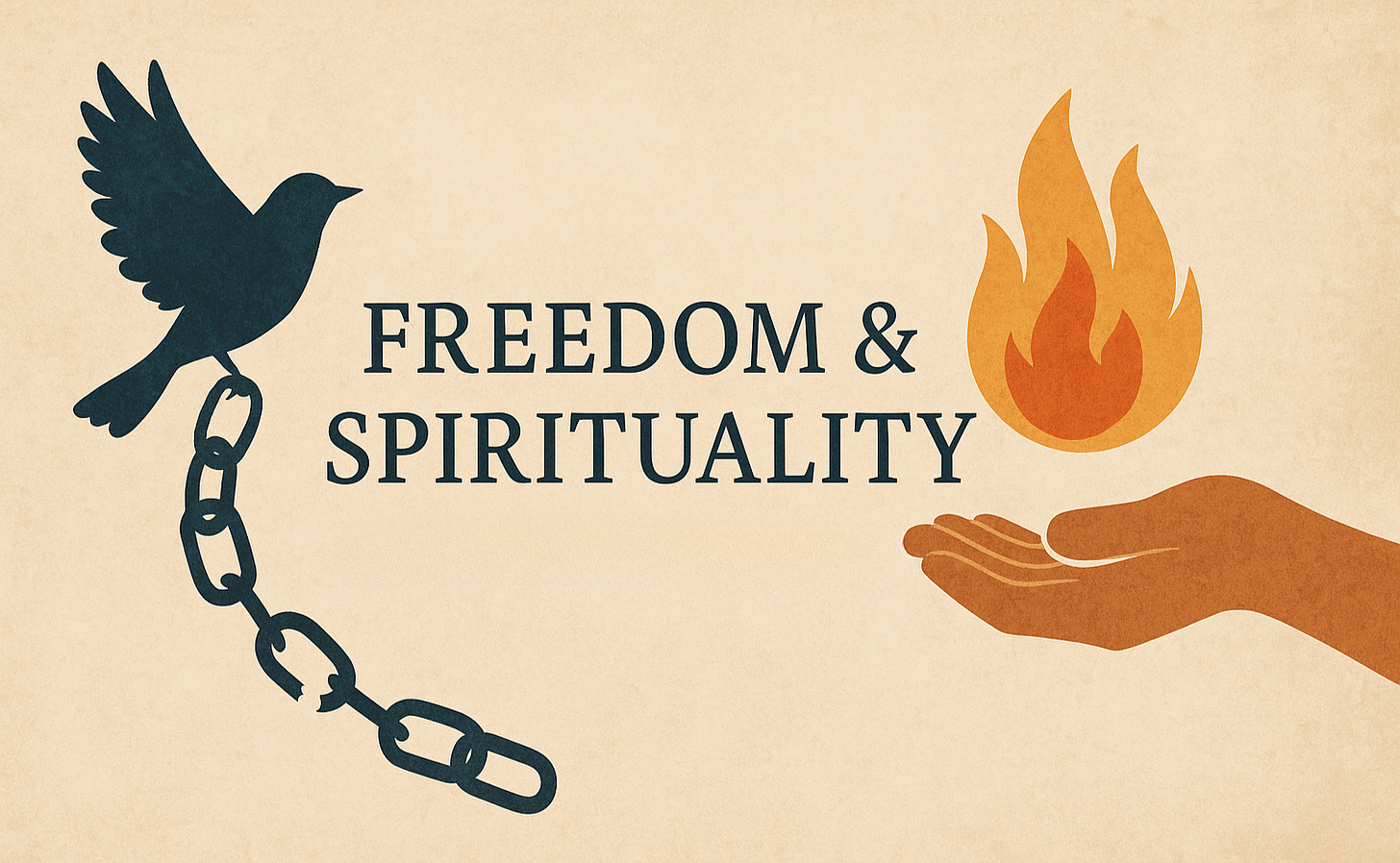The Essence of Freedom and Spirituality
Both freedom and spirituality defy easy definitions, often evoking varied emotions and interpretations. They’re usually not considered together and may even seem to be in opposition. If freedom means doing whatever you want, and spirituality means sacrificing for others, they might appear to be near opposites.
But such definitions are shallow—and arguably distortions of what the terms truly mean. So how do we determine their real meaning? Even an authority like the Merriam-Webster dictionary isn’t especially helpful. It defines personal freedom as “freedom of the person in going and coming, equality before the courts, security of private property, freedom of opinion and its expression, and freedom of conscience subject to the rights of others and of the public.”
That definition is legalistic, and mostly reasonable—until it reaches “the rights of the public.” How can “the public” have rights that individual persons do not? That phrase fails to capture the essence of freedom any more than “doing whatever you want” does.
In my view, personal freedom isn’t unchecked self-indulgence. It’s liberation from the chains of our vices. Likewise, if spirituality means connection to something greater than oneself, then one-sided self-sacrifice doesn’t honor that mutuality.
Animals act on instinct. But humans are uniquely able to pause before responding. We can feel something, reflect, and choose how we want to react. We can’t control everything that happens to us—but we can control how we respond. Our options range from wallowing in self-pity to looking for meaning or silver linings.
Of course, we all fall into unconscious habits. But we’re also capable of freeing ourselves. Every person who has overcome addiction or changed their life is living proof of that freedom.
Freedom begins inside us. It grows as we recognize our power to choose, even in difficult situations. When we understand that freedom is internal—not dependent on external circumstances—we can become truly free, no matter the conditions we face.
In the same way, spirituality is a choice. I was raised in a strict fundamentalist Protestant tradition and was taught that spirituality meant accepting a set of dogmas and obeying a long list of rules, even if they didn’t make sense to me.
Over time, I came to understand spirituality as a personal journey, not a set of external mandates. Instead of dividing people into opposing groups, I began to see religion as a shared search for wisdom—one that unites those who seek answers to life’s most profound questions.
Just as freedom can be experienced by focusing on our possibilities rather than our limitations, spirituality can be experienced by focusing on our unity with others rather than our differences. In this way, freedom can enhance spirituality—and spirituality can deepen freedom.
Wisdom appears in all cultures and traditions. Often it’s distilled in the most basic rules we teach children: Don’t hurt others. Don’t take what isn’t yours. Keep your promises. These form the moral foundation of nearly every religion.
Beyond that inner dimension, there’s an external one we must acknowledge. Each person is unique, with individual strengths and interests. Whether you attribute that to a Creator, the Universe, or some other source, it’s a blessing—because it allows us to serve each other. The outward expression of both freedom and spirituality is living in ways that honor ourselves and others ethically.
Freedom is choosing how we serve others to earn the things we want in life. It means respecting our own gifts and the desires and dignity of others. Spirituality isn’t about martyrdom—it’s about empathy and reciprocity.
When we try to impose our values on others, we damage the trust and mutual respect that voluntary interaction depends on. That’s why the heart of ethical behavior is consent.
Too often, freedom and spirituality are treated as abstract, philosophical ideas with no relevance to business. But as entrepreneurs—whether we serve one client or millions—we live both. We choose who we serve and how. At its best, entrepreneurship is the art of identifying needs and meeting them through work that sustains both giver and receiver.
Ultimately, freedom is responsibility. You can’t have one without the other. Any society that tries to shield people from the consequences of their choices ends up enslaving them. If we want a better world, we must cultivate communities that uphold individual freedom and voluntary action—because that’s where virtue lives, and where hope begins.



